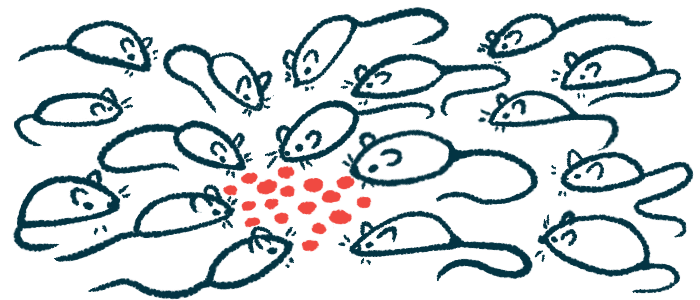Way of Producing Adult Nerve Cells Aids Memory, Eases Anxiety in Mice
Written by |

A group of cells in the hypothalamus, a specific brain region, are responsible for stimulating the production of adult-born nerve cells, or neurons, in another region called the hippocampus. Activating these new nerve cells leads to better memory performance in mice, a study reported.
These findings suggest that stimulating the production of new neurons — a process called neurogenesis — may be a promising way to help treat disorders like Parkinson’s disease, characterized by cognitive problems.
“Targeting the hypothalamic neurons to enhance adult hippocampal neurogenesis will not only benefit brain functions, but also holds the potential to treat cognitive and affective deficits associated with various brain disorders” Juan Song, PhD, an associate professor of pharmacology at the University of North Carolina and the study’s senior author, said in a press release.
The study, “Hypothalamic modulation of adult hippocampal neurogenesis in mice confers activity-dependent regulation of memory and anxiety-like behavior,” was published in Nature Neuroscience.
The hippocampus is involved in memory and regulating emotions, among other important brain functions. One of its unique features is its capacity for adult neurogenesis, a process in which new nerve cells are generated to replace the ones that die off throughout adulthood, helping to preserve the brain’s ability to work well.
It has been shown that in neurodegenerative diseases like Parkinson’s, adult neurogenesis can be impaired, likely contributing to the cognitive issues and mood symptoms that patients experience.
Stimulating the activity of brain circuits involved in adult neurogenesis may hold potential for treating such diseases. Recent evidence shows that the supramammillary nucleus (SuM), found in the hypothalamus, communicates with the hippocampus to regulate its activity. But whether stimulating the SuM might improve brain function was not known.
Researchers with the university’s neuroscience center found that nerve cells in the SuM seem to communicate with a population of neural stem cells — nerve cell precursors — in the hippocampus. Activating these neural stem cells is an important early step in neurogenesis.
In a series of experiments using optogenetics — a technique that uses light to turn a specific cell population on or off — the team found that the activation of certain SuM cells caused neural stem cells in the hippocampus to activate and proliferate, or multiply. When SuM activity was inhibited, stem cell production was blocked. They also found that other patterns of SuM activity were subsequently needed for these nerve cell precursors to develop into fully matured adult-born neurons.
With the role for the SuM in mediating neurogenesis established, the team aimed to determine whether the findings could translate into better brain function.
Using a technique related to optogenetics, called chemogenetics, the researchers stimulated the activity of SuM-generated adult-born neurons in the hippocampi of live mice performing a memory task.
They found that activating the adult neurons improved spatial recognition memory — a type of memory involved in an animal’s ability to know where things are in space, and whether they’ve been moved. Also improved was contextual memory, in which an animal learns to associate a particular environment with a stimulus, in this case a fear-inducing one.
In tests of anxiety and depression, activating these adult-born neurons led to a significant decrease in anxiety-like behaviors but had no effect on depression.
In contrast, inhibition of the SuM and subsequent neurogenesis was associated with poorer memory and greater anxiety.
Further experiments showed that the SuM cells responsible for stimulating production of adult-born neurons were highly responsive to novel, or new, environments. When mice were placed into an unfamiliar environment, the SuM cells became more active and stimulated a greater production of adult-born neurons. These changes were associated with additional improvements in contextual and spatial memory performance.
“We also show that the SuM neurons are highly responsive when the mice experienced new things in their environment,” Song said. “In fact, in a new environment, mice require these cells for neurogenesis.”
Overall, the study “identifies a key … region in the hypothalamus that can be manipulated to enhance adult hippocampal neurogenesis. It also highlights the important role of [adult-born neuron] activity in the modulation of memory and emotional states,” the researchers wrote.
More work will be needed to understand how the stimulation of these cells may help in Parkinson’s disease.



